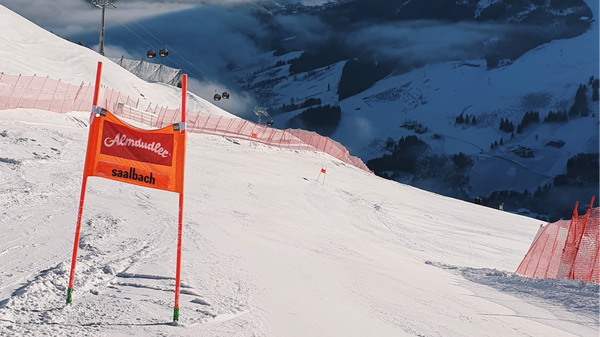

Just four days more and the FIS Ski World Cup 2024 will enter its slalom season. The schedule says the Finnish snowland, Levi Black, will host the contest on November 16 and 17. Next, the Austrian town of Gurgl will get the baton to play the same role on November 30 and December 1. But here comes the debate. The FIS inspection has already cleared Levi, announcing it is eligible for the hosting role. But the already depleting ice bed on the slopes of Gurgl worried the officials. Meanwhile, Gurgl has yet to see the green signal regarding its role. And it’s not the end of the bumpy road.
There’s another Austrian town almost 250 km from Gurgl slated as the venue for the FIS Ski World Championships in 2025. In the past, the venue has faced a series of issues hosting a much-debated event. Yet FIS has already stamped its yes’ on including the venue and the event. Why? Let’s explore.
ADVERTISEMENT
Article continues below this ad
FIS Ski World Cup fuels the debate by pushing a particular event
After the 2023 FIS Ski World Championships, the authority gave in to the concerted discontent. It was regarding the parallel race event in Saalbach. The stakeholders fueled the debate, pointing to the grave organizational failure and the uneven slope in Saalbach. As per them, the double whammies would inflict fatal injury to the ski racers in the event. Furthermore, many nations failed to register for the contest because of the event’s ‘team’ tag.
In fact, they couldn’t find more than one racer to include in the list for the event. All these reasons led FIS to shelve the event after the 2023 World Alpine Ski Racing Championships. But the largest body has now decided to include the event in the 2025 schedule and host it on the slopes of Saalbach. However, that call proved to be unexpected. There must have been reasons, no? But what are those?
As per the report of Skiweltcup.tv, Michel Von feels satisfied after noticing the success level of the team event in last year’s world championship.

via Getty
LECH, AUSTRIA – NOVEMBER 14: Henrik Kristoffersen of Norway, Christian Hirschbuehl of Austria during the Audi FIS Alpine Ski World Cup Men’s Parallel Giant Slalom on November 14, 2021 in Lech Austria. (Photo by Christophe Pallot/Agence Zoom/Getty Images)
According to the secretary general of FIS, the team events in Courchevel and Meribel turned out stunning in every aspect. Even the ski racers gave positive notes about the organizational presentation. That made FIS think about relaunching the team parallel event. But, things indicate that there is more depth in the decision.
First, FIS has its own obligation to the marketing agency Infront, to host eleven races at Saalbach. The team parallel event would add the eleventh event. Another is that FIS may reinstate the parallel event in the 2030 Olympic Games. That’s why it wants to test the event at the senior level. Additionally, a few more experiments are on the cards. The combined effect of these reasons may push FIS to throw its weight behind the controversial race.
But how has Saalbach found its way to sneak into the list? Last season, the complications in the Austrian zone had different issues.
The Austrian snow town has its own story in handling issues
Marco Odermatt may not like Saalbach. In March this year, he reached the town to fulfill his dream of taking the Downhill Crystal Globe in the 2023-2024 season. He had been 42 points ahead of his nearest chaser, Cyprien Sarazin, and expected to give a head-to-head contest to his French opponent. But nothing went according to his plan.
After several delays, the hosts had to cancel the final event of the FIS Alpine Ski World Cup. On March 24, Odermatt was handed the trophy because of his advantage in the point table. But he earned it without a battle in the final. The reasons were many.
ADVERTISEMENT
Article continues below this ad

ADVERTISEMENT
Article continues below this ad
First, the venue faced harsh weather during the event timeline. The combination of snowfall and wind made the hosts clueless about clearing the racing tracks. Nonetheless, the critical weather continued for several days. Without a doubt, the situation was a lot worse. According to the host, the track posed a significant risk of an accident. Therefore, the decision of cancellation followed.
This time, the parallel events and others are scheduled almost in the same timeline, in the first half of February in Saalbach. Wouldn’t that be risky enough? Furthermore, in the past, Marco Odermatt didn’t feel comfortable in a parallel event. Several times, he bowed out of the event. The blame went to the track conditions and the regulations. Would that repeat this time? What do you think?
ADVERTISEMENT
ADVERTISEMENT
ADVERTISEMENT
ADVERTISEMENT


